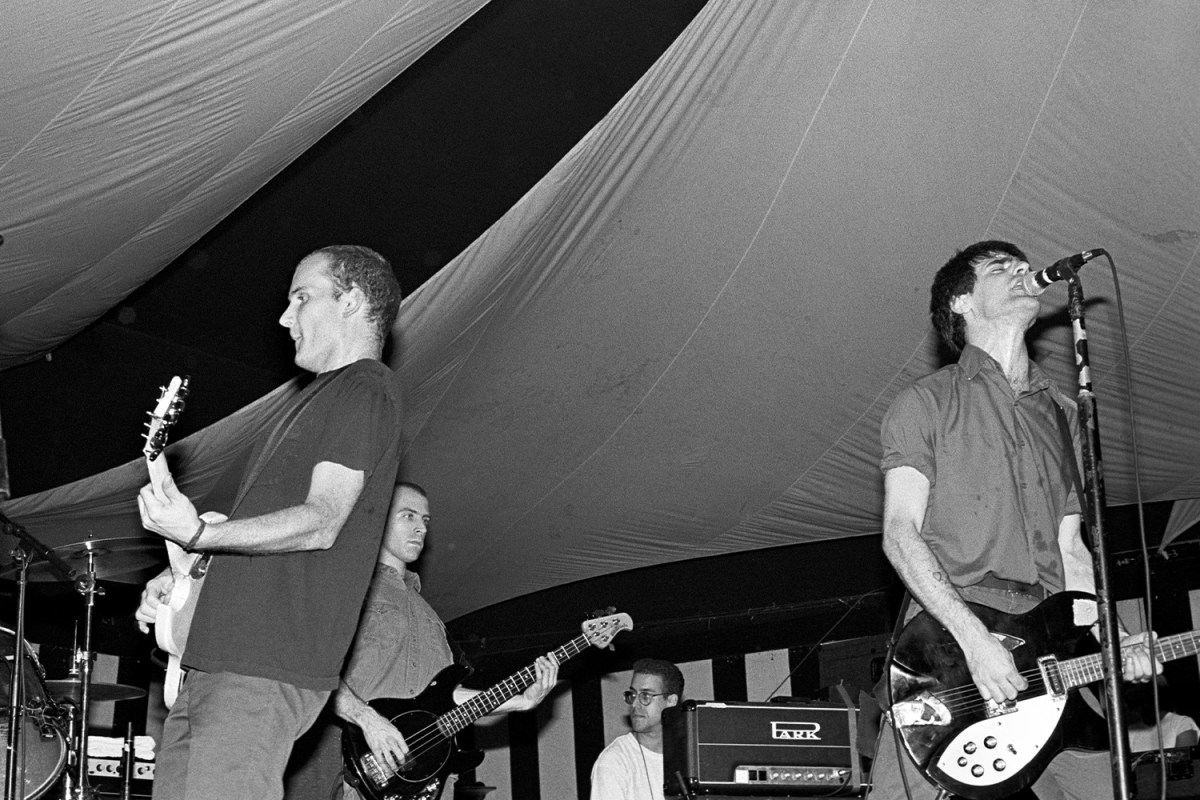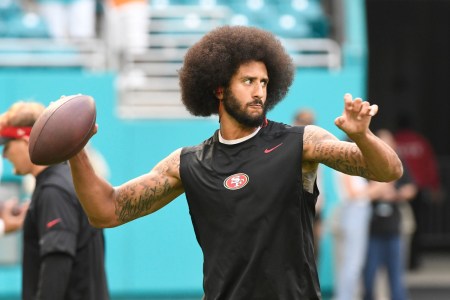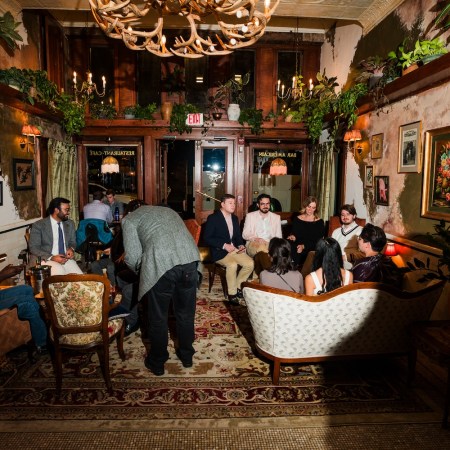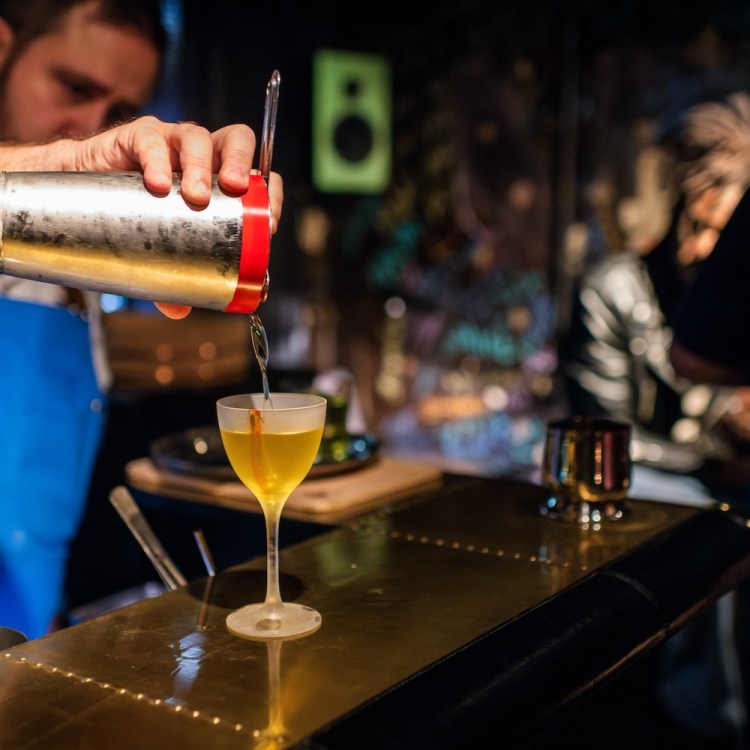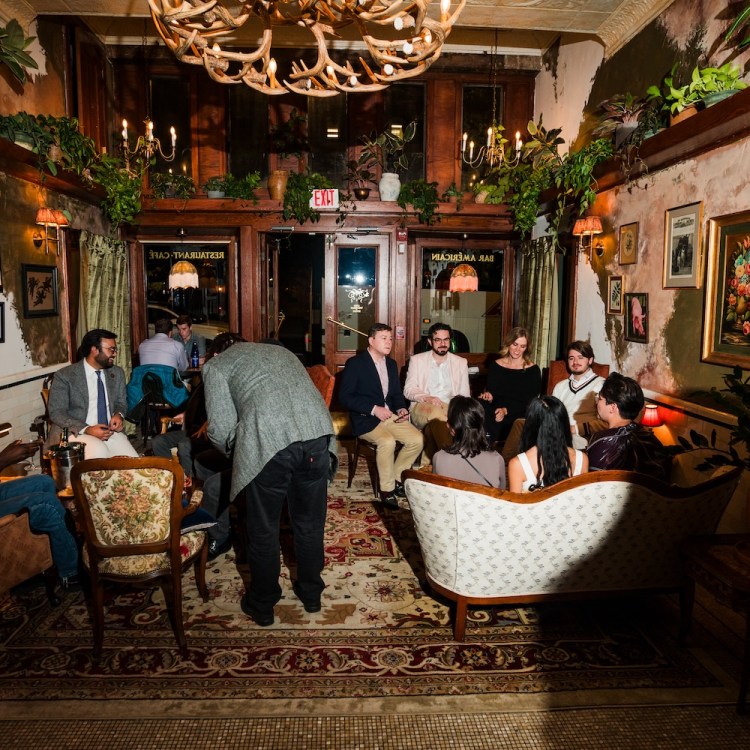One of February’s most popular concerts was a movie. We Are Fugazi From Washington, DC pulls fan footage of the most beloved band to ever come from DC to celebrate the 20 years since their last live performance. When the initial screening was announced, it quickly sold out. Another screening was added. That also quickly sold out.
The film is a collaboration between Joe Gross (author of the 33⅓ book on Fugazi’s In on the Kill Taker), Joseph Pattisall (filmmaker, The Legend of Cool Disco Dan), Jeff Krulik (filmmaker, Heavy Metal Parking Lot) and the fans who shot the shows. And though all four members of Fugazi are alive and well, with most still releasing critically acclaimed music and playing out live, there are no reunion shows on the horizon. Which means this presentation is as close as Fugazi fans are going to get to another concert.
We spoke with filmmaker Jeff Krulik about the film, the other film he’s been working on — which hasn’t sold out, yet — and why this isn’t a documentary.
InsideHook: What inspired all of this? The film and the series.
Jeff Krulik: The whole concept is a series anchored by Fugazi on one hand and Razz, the band from the ’70s, on the other. The idea was to have two iconic local bands anchoring this small, music-related film series at AFI.
Fugazi is, of course, globally famous. Some people say Razz was locally famous in the ’70s.
I was working on the Razz project, and then I realized Fugazi’s last live show was November 4, 2002 in London. I had the idea to commemorate that with a screening, that was originally we were going to show Instrument [the 1999 documentary about Fugazi].
But I started to think, you know, so many of their live appearances were taped. They were around when home video was really starting to become prolific, but it wasn’t like today, with cameras in your back pocket. When Fugazi began and throughout their performing history, people were allowed to document them. It was not discouraged. People would bring cameras, video cameras. A lot of this is on YouTube, in various degrees of quality. I was intrigued by that and thought, why don’t we recreate the live experience using the crowd-sourced material that’s out there? We were hopeful on locating some new material that hasn’t been screened, or that people had maybe not have transferred or digitized or uploaded.
That was our starting point. That’s where we began to assemble what was basically a recreation more than a documentary, because the first line is, “This is not a Fugazi documentary.” This was all in their own initiative, to tape the band. We wanted to pay tribute to these people as much as the band.
When you say “these people” you mean the fans that went to shoot the show?
Exactly, the fans who brought the cameras. Some were just fans and some were aspiring filmmakers.
Spike Lee’s Canceled Colin Kaepernick Documentary Sparks Questions
ESPN was set to air the documentary seriesWe should mention the well-known aspiring filmmaker that’s part of this.
Some have become filmmakers that were aspiring at the time.
Like Lance Bangs [Jackass, a ton of groundbreaking music videos].
Lance was one of the first who we had reached out to because he’s got a lot of his work on Vimeo. Not all of it, but he’s a very prolific filmmaker, and he shares a lot. So when we were talking about this at the beginning, Ian [McKaye] was directing us to what he really liked and things that he thought was really great and captured the band well, and one of them, of course, was Lance Bangs. So Lance was on board right away. We were able to include his work but Lance kind of helped blow this up. As soon as the film was on the AFI calendar, tickets were selling and people were aware of it. But when Lance posted it on his Twitter and Instagram, it went haywire. And that’s when it sold out. And we have multiple sellouts.
Let’s transition to Razz. What made you want to make this film [Razz (The) Documentary]?
Razz were a band that I was fortunate to catch the tail end of when I was getting into music in the late ’70s. I’m from Bowie, Maryland, and went to University of Maryland. They were really well-known locally as one of the top original rock bands. And they had a really distinct style. If you saw them, you remembered them. Like most bands, they tried to reach for the brass ring. Things didn’t work out. They gave it their best. But the band broke up. But I always was a fan and always thought more people should know about them.
I teamed up with Richard Taylor to make this documentary, we started working on it in 2018. Rather, we kind of had our first work in progress screening to commemorate the release of their first single. We’re calling this screening [April 29 at AFI Silver] the director’s cut because we want to share with the fans of the band as much as we can.
Could Fugazi happen again in this ecosystem? Is it even possible to reach this many people at the $5 price point and no major label or licensing?
Oh, gosh. I don’t know. I hope so. Even Ian would probably say that. I don’t know, you’d have to ask him. Although it takes a lot of work, I could imagine it. But they have never been dismissive of the path that others have taken.
I’m no authority, but Ani DiFranco kind of did the same thing. And I think others have carved out similar paths with regards to their own product and their own image and charted their own course. Fugazi took it to another level with regards to the $5 ticket price. And certainly locally in the Washington area, everything being for charity or raising money for specific causes that they believed in.
Is there any shared DNA between Razz and Fugazi? Because from an outsider’s perspective, it seems like they’re two polar opposite groups.
They were both really kind of electric, sensational performers that were very energized and had a real energized fan base.
At that time, it was all about getting the record contract with a major label. Fugazi started with their own label, Dischord, and followed their own path. But the DNA is definitely there with two really exciting frontmen. I mean, I shouldn’t say that for Fugazi, they had two frontmen.
Fugazi really cracked nationally and globally, they worked hard at getting themselves seen. For whatever reason, it didn’t work out that way for Razz — but locally, they were really just as influential and inspirational and exciting as Fugazi.
This article was featured in the InsideHook DC newsletter. Sign up now for more from the Beltway.
